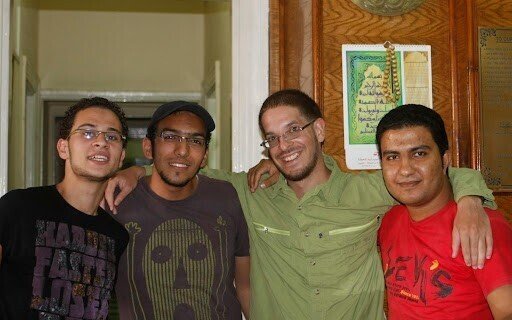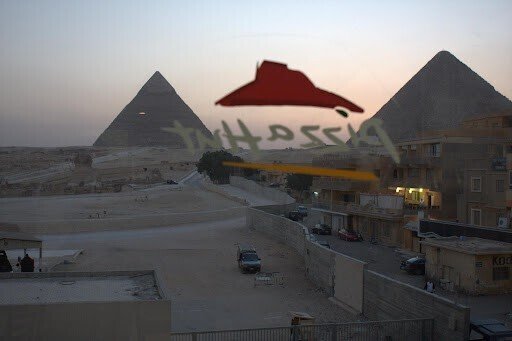
Finding a New Routine in Cairo, Egypt
When I was a graduate student in Linguistics, I spent about two years studying Arabic. During that time, my advisor recommended that I study abroad over the summer session in order to improve my Arabic and also to become familiar with a regional dialect. Modern Standard Arabic, the language that is most commonly taught in classes, is a literary language that isn’t spoken natively in any country. Thus, I enrolled in a program with the American University in Cairo. It was quite expensive, even by US standards, but I received a scholarship that covered my tuition costs and so I was able to go.
Hotel life
Students were given the option to stay in the university dorm or to find our own housing. I wanted to live among Egyptian people, so I opted to try and find my own place. For my first few nights, I booked a room in a budget hotel in central Cairo. Ultimately I failed to get an apartment, so actually I ended up staying in that hotel for three months. I wasn’t the only long-term resident there. Among the others were an American journalist, a Japanese journalist (whose room looked like a library), a retiree from Lebanon, and an Australian woman on a gap-year holiday. The other rooms were filled with a constant flow of locals and tourists, thanks to the cheap rent and proximity to important government and tourist institutions.
It was a vibrant, cosmopolitan atmosphere. One night I could go to dinner with some Korean tourists and the next day have lunch with a local muslim cleric. In the evenings guests would gather in the central area to drink tea and smoke shisha with the hotel staff while watching reruns of James Bond movies. More so than university classes, that hotel was my window into the Arabic language and Egyptian culture.

Ancient Egypt
One allure of Egypt of course is its ancient history. I saw a lot of antiquity while in Egypt but two places stuck out at me in particular. The first is the pyramids. I felt that other ancient Egyptian sites are more interesting, more elaborate but the pyramids impress with sheer scale. And because they’re located inside of Cairo, they were the first place of antiquity that I visited. It’s possible to get to the pyramids by public transportation, which makes sense but somehow felt weird the first time I went: “Next stop, ancient civilization!”. Me and my friends ate dinner at a Pizza Hut next to the pyramids which just added to the surreality of the experience.

The second place is Mt. Sinai where Moses is said to have received the 10 commandments from God. I hiked up the mountain during the night and saw the sunrise, a popular tourism and pilgrimage activity. Although there were many groups hiking together, the hike was not easy, and most of it was spent in meditative silence, which somehow felt appropriate for the setting. I didn’t plan my trip at all so I unintentionally brought all of my luggage for the summer–textbooks, laptop, clothes, and all–with me on my hike. I was young I guess, so I survived somehow (laughs).
We grow up reading about the pyramids and places like Mt. Sinai, but to me they always seemed to be abstract concepts rather than real, physical places. I never imagined I would actually be able to go there and see them. And having gone there, for the first time I had this feeling like “The world is a big place, but I can go anywhere and do anything.” (though I’ve long since lost that feeling (laughs))
The mundanities of daily life
That being said, Egypt to me was more than just visiting the larger-than-life places. I reminisce about the small things that I experienced day-to-day: dancing between cars when crossing the street, walking across the nile at dusk when the heat of the sun levels off, ignoring the touts beckoning me into their shops as I leave my hotel, hearing the call to prayer melodiously played over loudspeakers five times a day, eating some of my favorite foods: fresh sugar cane juice, pigeon stuffed with rice, fuul (broad bean paste in flatbread with various toppings) or koshary (a multigrain pasta covered in a garlicky tomato sauce).
Before Egypt, I had spent my whole life in a mid-sized American city. For that summer, I substituted the urban sprawl of American suburbia with the hustle and bustle of the capital of Cairo. The lush greens of my hometown were replaced with a broad palate of sandy yellows and the relative quiet of my tree-filled neighborhood with the ceaseless noise of city life. My time in Egypt got me out of my daily routine and forced me into a new routine within a new setting and with new rules. The experiences I had inspired me to keep traveling. In the five years that followed, every summer I went to someplace outside the US, including Japan and a second trip to Egypt, but those are stories for another time.
